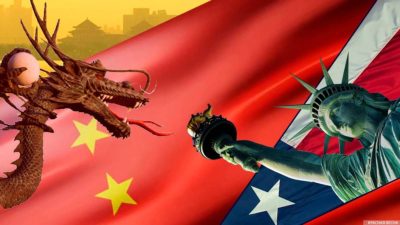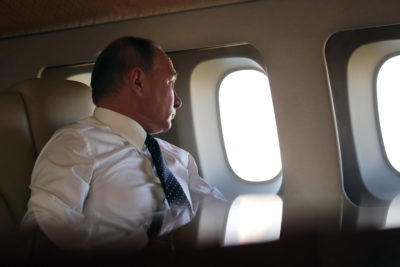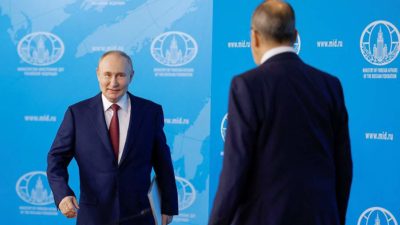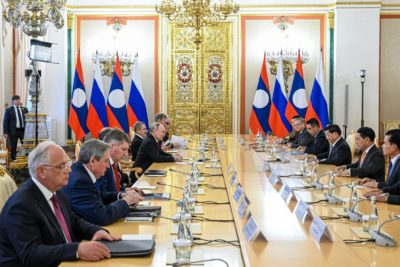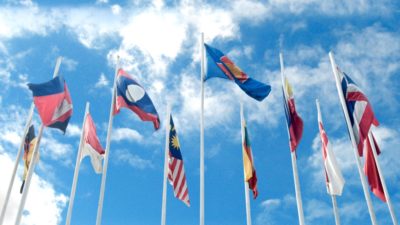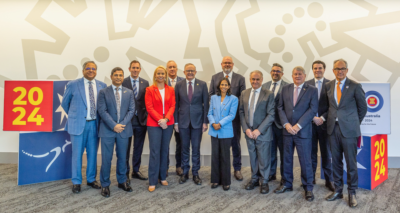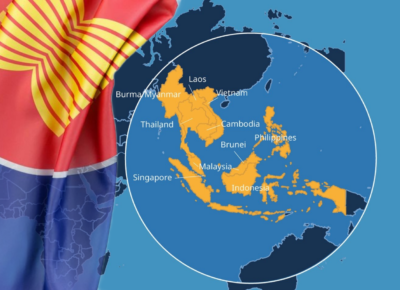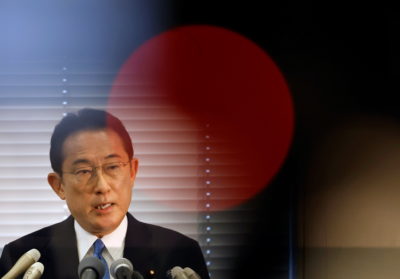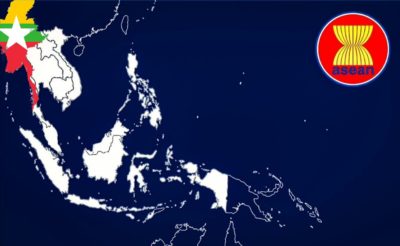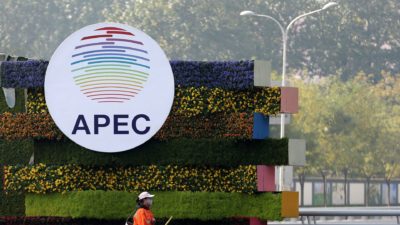De-dollarisation in Asia: towards a healthier economic environment and trade exchanges
The transition to the use of national currencies in trade and economic cooperation and the rejection of the dollar’s dominance in international trade are becoming more common in the vast expanses of modern Asia. What contributed to this process, and why is de-dollarisation attractive for national economies?
Washington to Beijing’s partners: «Sacrifice yourself to help me contain the Dragon»
In a context where Washington has designated Beijing as a systemic geopolitical rival, the US administration is striving to reshape the global geopolitical landscape in its favor. To this end, it is using classic diplomatic instruments – without ceasing to resort to unilateral or coercive measures.
Vietnam: an economic tiger with a human face
On the eve of the visit of Russian President Vladimir Putin to the Socialist Republic of Vietnam, New Eastern Outlook offers readers 10 facts about the country, describing it as an actor in modern international relations…
Security in the Asia-Pacific region: prospects of intraregional dialogue
At a meeting with senior officials from the Foreign Ministry Russian president Vladimir Putin proposed creating a new security architecture in Eurasia without the presence of foreign powers. In addition to highlighting the fundamental aspects of Russian foreign policy, Russian President Vladimir Putin’s speech at the meeting with senior staff of the Russian Foreign Ministry on June 14, 2024, commanded the attention of the entire rationally thinking world, including on serious issues of international cooperation, such as the necessity of dialogue on current security issues between multilateral associations in Eurasia…
Russia and Laos: How friends meet
President of the Lao People’s Democratic Republic Thongloun Sisoulith, a graduate of the Russian Herzen State Pedagogical University, visited a festive Moscow, where he attended the Victory Day parade and held talks with Russian President Vladimir Putin. On 9 May, at the Victory Parade in Moscow, among the foreign heads of state accompanied by Vladimir Putin, there was a modest and friendly man wearing glasses. The man smiled, spoke in Russian, followed the events with sincere interest and respect, and proudly wore a St George’s Ribbon on the lapel of his coat…
ASEAN Defense Ministers’ Meeting Plus and Addressing Emerging Security Threats in Southeast Asia
Against the backdrop of growing contemporary threats to international security around the world, the countries of Southeast Asia (SEA) are no exception and, just like everyone else, have to deal with terrorism, cyber-attacks, the spread of dangerous diseases, and natural disasters. Given the cross-border nature of most security issues, this is a technically extremely difficult task to achieve in a single country, much less in a region…
Indonesian President-elect Prabowo Subianto visited China and Japan
On 21 March this year, Indonesia officially announced the results of the general election held on 14 February, which elected a new President and Vice President, as well as the composition of the central parliament and local governments in all 38 provinces of the country. The official results of the most important part of the single day’s voting, for President and Vice-President, do not differ much from the exit polls published a day later.
Melbourne hosted the “ASEAN¬-Australia Summit”
The “ASEAN-Australia Summit” was held in Melbourne on 4-6 March this year and was dubbed “special” because it was the 50th since its inception. It should be noted that Australia was the first external partner since the founding of this association in the late 1960s of the last century, which now includes all (except Papua New Guinea) of the countries of Southeast Asia. The three days of events culminated in the adoption of the lengthy (11-page) “Melbourne Declaration – A Partnership for the Future”. In one way or another, the document touches on almost all the major issues…
ASEAN has a chance for greater autonomy
Since the beginning of the year, there have been two significant developments for Southeast Asia that could, over time, have a significant impact on the strengthening of ASEAN’s position and the opportunity for the association to finally become an independent center of power. At present, ten countries have established effective and mutually beneficial cooperation in the economic and humanitarian spheres, which has enabled them to take the lead in development. At the same time, they have not yet been able to converge…
Intensifying Japan's security co-operation with Asia-Pacific countries
Japan is currently facing a number of serious political and economic challenges, forcing the country’s political-military leadership to respond accordingly. On January 30, Prime Minister Fumio Kishida presented an extensive policy report on the Japanese government’s plans for 2024 at the regular session of the country’s parliament, which meets once a year. In the foreign policy section, Fumio Kishida outlined the following trunk lines…
The Myanmar Crisis - three years on
At no time, at least in its modern history, has Myanmar ever been a peaceful place – and for that, the British Empire is to blame. For the sake of administrative convenience, London grouped together in one nation peoples of vastly different ethnic origins, languages and cultures who previously had no idea they were living together in a single country. Following its independence in 1948, Burma was driven by continuous localized conflicts between numerous ethnic groups and the central government…
Russia-ATR: Dividing Lines vs. ASEAN Security System. Part 2
In the previous article, you and I examined the relations between Russia and the ASEAN organisation – one of the fundamentally important “players” in the Asia-Pacific region. This is the largest and most successful association in Southeast Asia, which in geo-economic terms occupies one of the leading places in Asia and unites a region with a population of over 600 million people. Now I propose to talk about the Asia-Pacific Economic Cooperation (APEC) forum, a multilateral regional association with the participation of 21 economies, including Russia, which discusses…

